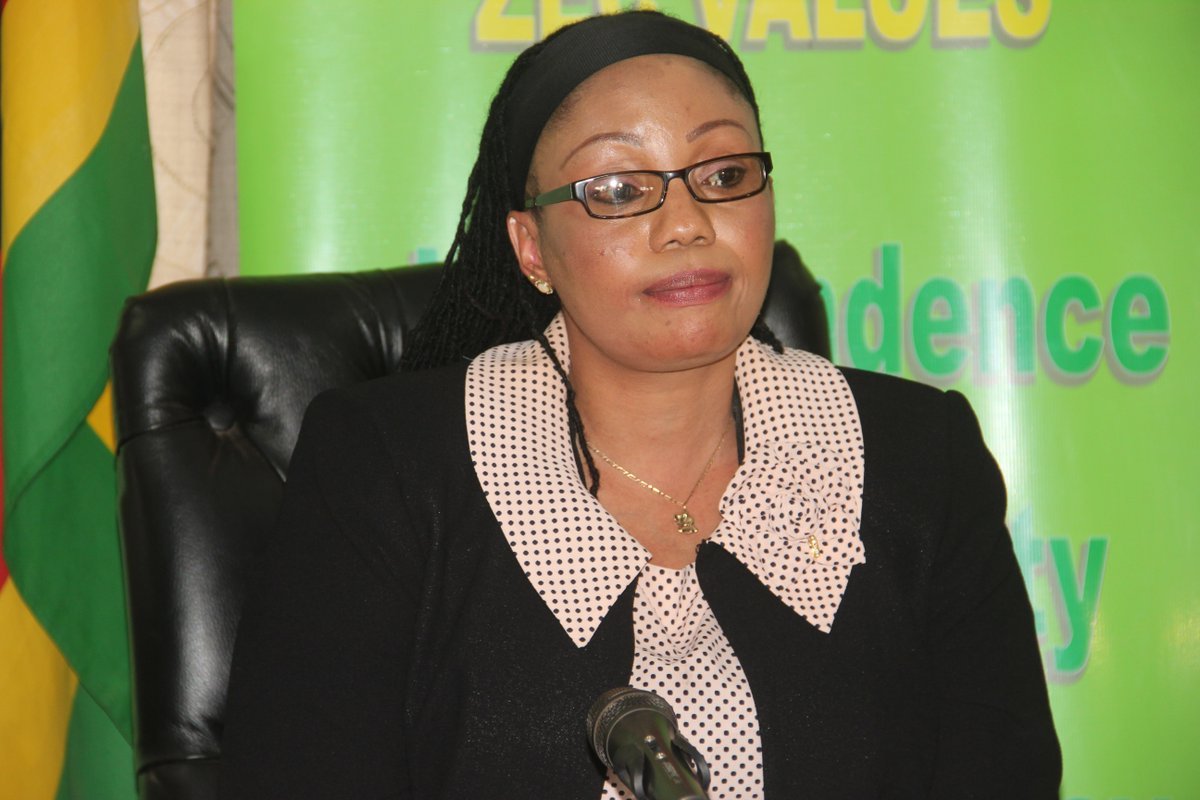…EMB integrity questioned over delimitation report
…Opposition sold a ‘dummy’, to score own goal
Theresa Takafuma
Is the Zimbabwe Election Commission (ZEC) a competent body? Many people are questioning after ZEC released its preliminary delimitation report which is allegedly marred with irregularities while others think it has simply sold its integrity by going to bed with the ruling party Zanu PF which, according to impeccable sources, wants the electoral body to maintain the current constituencies’ boundaries for the 2023 harmonized elections.
The preliminary delimitation report which was tabled before Parliament by Minister of Justice Ziyambi Ziyambi on January 06, 2023, is proposing to dissolve some constituencies in Zanu PF’s strongholds and creating new ones in urban centres which are currently controlled by the main opposition party, Citizens Coalition for Change (CCC).
Political analysts have raised red flags saying there is a possibility of an invisible hand that is controlling ZEC and forcing it to sacrifice its integrity by producing such a preliminary delimitation report with glaring anomalies.
Political analyst Dr Wellington Gadzikwa said the report exposes ZEC and is probably a deliberate ploy by Zanu PF so that the current boundaries are maintained during the 2023 general elections. He added that the suspicion raised by how the ruling party and the electoral body suddenly have sour relations cannot be ignored.
“It is strange for the ruling party to be at loggerheads with ZEC and people have all the reasons to be suspicious about these sudden sour relations. It could be a political gimmick or some other trick that people will realize later.
“It’s either they are at loggerheads or something else but it is very difficult for these two organs to go against each other. If they really are going against each other then it’s a different story but it is suspicious. This could be a ploy by the ruling party so that we go for an election using the current boundaries which favour them,” Dr Gadzikwa said.
In the report, some constituencies which are primarily Zanu PF strongholds are dissolved while some only have their electorate offloaded into other wards.
An analysis report by a 13 member Parliament Ad Hoc Committee on the preliminary report tabled in Parliament on January 13, 2023 largely criticized how the delimitation process was done, mostly without using the Final Census Report as per legal requirement, and will be debated in the August House on January 17 and 18, 2023 before being sent to the President.
ZEC deliberately exhibiting incompetence?
Among issues raised on the preliminary report draft are glaring legal issues that include the interpretation of Sections 160 and 161 of the constitution, as well as section 37A of the Electoral Act which speak on the legal basis of delimitation of electoral boundaries.
How ZEC has only used the census preliminary report for the delimitation exercise has been questioned, especially in the Parliamentary Ad Hoc Committee analysis report, with some analysts saying it could have been a deliberate ploy by ZEC to miss such a crucial legal requirement with dire implications.
In an interview, Labor Economists and Afrikan Democrats (LEAD) President Linda Masarira said it is concerning that legal minds at ZEC missed the requirements stipulated in the constitution on how a delimitation exercise should be done.
“ZEC has proved that it has no capacity to do a valid delimitation exercise. What is worrisome is how legal minds within ZEC failed to interpret section 161(3) and 161(6) of the Constitution of Zimbabwe. The sham job that ZEC did with the delimitation report raises eyebrows on whether they really have the capacity to run elections in Zimbabwe,” Masarira said.
Speaking to TellZim, political commentator Dr Pedzisai Ruhanya said the preliminary report showed that ZEC is compromised as it is only exhibiting factional fights in the ruling party, and the analysis report by the Parliament Ad Hoc Committee is pro-Zanu PF as well.
“What you see playing at ZEC is a reflection of the power struggles in Zanu PF, but most importantly it tells you that ZEC is compromised, captured and has no fidelity to run free and fair elections in Zimbabwe.
“That report is a pro-Zanu PF report. That report supports the Zanu PF agenda but what you need to look at is who within the Zanu PF factions’ benefits more. Among the factional fights in Zanu PF it is tilted against those who support (President) Mnangagwa, that is why it has been rejected. It exhibits lack of elite consensus within the ruling party.
“What is likely to happen when legislators debate on the issues raised in the report, given what the Ad Hoc committee of Parliament has said, unless these people put aside their fights and ZEC also agrees to address issues raised it is likely that the report will be thrown out,” Dr Ruhanya said.
Gerrymandering: to what extent?
ZEC has been accused of gerrymandering: the dictionary definition of this phenomenon is to manipulate the boundaries of an electoral constituency so as to favor one party or class.
This has been described by analysts as one of the age old tactics to steal an election used by the ruling party, like in previous elections in 2000, 2008 and other examples.
Media researcher and trainer Dr Last Alfandika said whilst there are suspicions that the ruling party is gerrymandering through the delimitation process, as evidenced by the seemingly dilution of the urban vote through offloading some urban wards into the rural areas where the ruling party is dominant, it may work against them.
“We are seeing most of the opposition strongholds getting mixed up with rural electorate, maybe in the hope that they dilute the urban vote, it may work against them where the opposition actually takes some of the ruling party strongholds.
“The ruling party also wants to win some of the urban areas, which will require more work to appease them, but then they are the authorities, they can use their power on resources to campaign. But we are likely to see deterioration in the event that some rural areas are taken by the opposition like we have seen in urban areas taken by opposition,” Dr Alfandika said.
Research Fellow of Institute for Pan African Thought and Conversation (IPATC), University of Johanessburg, Dr Alexander Rusero said what the Ad Hoc Committee of Parliament raised on the delimitation preliminary report, real technical issues are pointing to ZEC incompetence, not necessarily on partisan grounds or the electoral body being biased towards Zanu PF.
“The technical sentiments raised by the committee to say the delimitation report should not be detached from the final census report are valid. That alone tells you the extent at which incompetence could actually be the one crippling ZEC, not necessarily the partisan sentiments where the electoral body is accused of favoring Zanu PF.
“ZEC should go back to the drawing board and factor in the recommendations and produce a good report. I don’t think time constraints are an issue here because what is more important is that whatever ZEC is trying to do is aimed at strengthening our democratization and delivering a credible poll at the end of the day.
“I don’t think the narrative that ZEC favors Zanu PF is a good narrative, so ZEC should just do the right thing, rope in the technical expertise and make sure that at least the election resembles the aspirations and the will of the people,” Dr Rusero said.
He also said from the Ad Hoc analysis report, it shows that Parliament is in agreement, albeit Zanu PF’s two thirds majority in the August House, but although strange, that they are also against the report points towards democratization of the process.
Way Forward
While the general sentiment is that the delimitation process was not properly done, Election Resource Centre (ERC) has said that on top of addressing issues raised by stakeholders, it should extensively consult in order to have a comprehensive report that is acceptable despite their ability to legitimately make certain decisions.
Speaking to TellZim News, ERC Programs Manager Solomon Bobosibunu said ZEC might not necessarily go to every village or constituency but to look at who represents the interests of the citizenry in order to rectify issues raised in the draft report.
“If there are political parties that they can meet with, thrash those differences (raised in the report) they can then produce a comprehensive reviewed document.
“ZEC can naturally prompt section 161(12) of the constitution but we would not want them to go that route because we want them to engage with stakeholders, we want consensus in all electoral processes, we want people to buy in, to the different boundaries, accept that there are changes that can actually be made legitimately by the electoral commission for the reasons that are valid.
“If they are yet to consider population data, let them also take that into account and consider the geographic distribution of voters together with the implications of the boundaries they are proposing. This would go a long way in making the election credible and acceptable by all stakeholders involved in the entire electoral process,” Bobosibunu said.







